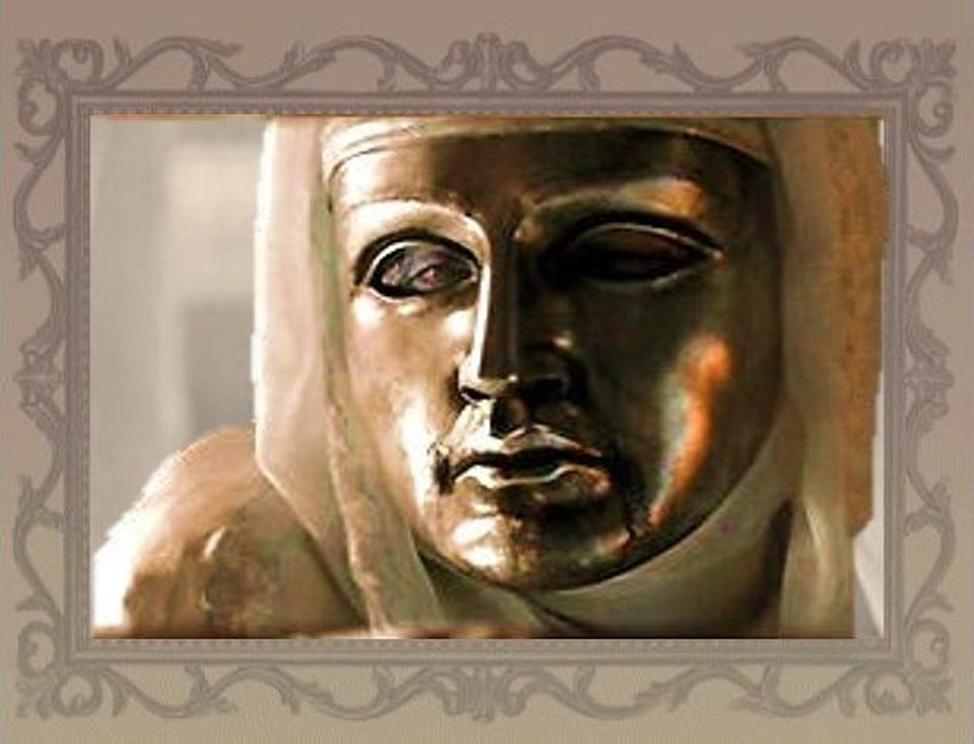The quote attributed to Baldwin IV did not originate from any historical record but was created for the 2005 film Kingdom of Heaven. Screenwriter William Monahan wrote the line, drawing inspiration from historical accounts but inventing dialogue to fit the movie’s narrative. Extensive review of medieval sources reveals no evidence Baldwin IV ever spoke or wrote the quote in question.

Baldwin IV, King of Jerusalem from 1174 to 1185, is known historically as the “Leper King” due to his struggle with leprosy. Accounts from his period, including those by William of Tyre—Baldwin’s tutor and court historian—do not record any notable speeches or distinct quotes attributed to him. William of Tyre’s chronicles, compiled during Baldwin’s reign, occasionally capture conversations involving Baldwin’s father, King Amalric, but never Baldwin IV himself. This scarcity highlights the absence of any primary source verifying the famous quote.
The surviving documentation paints a limited personal portrait of Baldwin IV. Medieval and contemporary Arabic, Latin, and French sources generally focus on his physical condition and how it affected his rule. His leprosy overshadowed other aspects of his personality or leadership. Historians note that Baldwin’s incapacitation led to regents effectively managing affairs, underscoring his declining health rather than any memorable speeches.

Some authentic pieces of Baldwin IV’s voice survive through letters he wrote, a few of which have been preserved and translated. For instance, a letter addressed to King Louis VII of France illustrates Baldwin’s awareness of his physical limitations and the political consequences of his illness:
“To be deprived of the use of one’s limbs is of little help to one in carrying out the work of government. If I could be cured of the disease of Naaman, I would wash seven times in Jordan, but I have found in the present age no Elisha who can heal me. It is not fitting that a hand so weak as mine should hold power when fear of Arab aggression daily presses upon the Holy City and when my sickness increases the enemy’s daring… I therefore beg you that, having called together the barons of the kingdom of France, you immediately choose one of them to take charge of this Holy Kingdom…”
This letter, possibly dating to circa 1178, reveals a solemn and realistic monarch who recognized his limitations. The tone is humble and measured, with no dramatic or profound phrases resembling the cinematic quote. Instead, it reflects Baldwin’s political prudence and the dire circumstances surrounding his reign.

Modern historians rely heavily on scholarly works such as Bernard Hamilton’s The Leper King and His Heirs (Cambridge University Press, 2000), which compiles translations and interpretations of Baldwin IV’s correspondence and chronicles. Hamilton’s research confirms the absence of dramatic quotes like those seen in films. Instead, the king’s recorded words center around his illness and practical concerns about succession and defense, rather than eloquent statements or declarations attributed to him in popular culture.
The widely circulated quote from Kingdom of Heaven is a product of creative license common in historical dramas, aimed at providing emotional resonance and character development. It should not be mistaken for an authentic historical statement.

| Aspect | Historical Fact | Cinematic Interpretation |
|---|---|---|
| Quote Origin | Invented by screenwriter William Monahan. | Attributed directly to Baldwin IV in Kingdom of Heaven. |
| Medieval Records | Silent on any notable quotes from Baldwin IV. | Features a memorable, dramatic royal quote. |
| Characterization | Focus on Baldwin’s leprosy and political challenges. | Portrayal includes inspiring rhetoric. |
| Authentic Writings | Letters display humility and political realism. | No reference to the invented quote. |
- The famous quote did not originate from Baldwin IV but from a modern screenplay.
- Medieval sources, including William of Tyre, do not provide any matching statements by Baldwin.
- Baldwin IV left behind a few letters that convey his illness and political concerns in sober tone.
- Recent scholarship finds no historical basis for the dramatic quote attributed to him.
Did Baldwin IV Actually Say This Quote?
Short answer: No, the famous quote attributed to Baldwin IV was never said by him. It’s a modern invention, created for the movie Kingdom of Heaven, penned by screenwriter William Monahan.
Let’s dive into the fascinating truth behind the leper king’s words—or rather, the words he never spoke.

When you watch a historical movie and hear a stirring line from a legendary figure, it’s tempting to assume it’s based on fact. But Hollywood has a flair for drama that sometimes bends reality. The Baldwin IV quote is a textbook example.
The Origin of the Quote
The quote doesn’t come from any medieval record. It was invented for the 2005 Ridley Scott film Kingdom of Heaven. The screenwriter, William Monahan, borrowed themes from historian Steven Runciman’s narratives but wrote the speeches and dialogue himself.
No medieval manuscript or chronicler of the era presents Baldwin IV speaking with this theatrical flair. Instead, we have to accept that some modern creativity designed that memorable line to enrich the film’s emotional impact. Audiences might feel the words capture the spirit of Baldwin’s struggle, but historically, they are fiction.
Medieval Sources and Baldwin’s Silence
Here’s where it gets interesting. The medieval chronicler William of Tyre, who also tutored young Baldwin, never records him speaking much. William was meticulously documenting events while Baldwin ruled, so his silence on any famous quotes is telling.
In fact, Baldwin IV doesn’t get many recorded speeches or dramatic declarations. The historical record is mostly silent about the king’s personal words. This absence is unusual for a monarch but likely stems from Baldwin’s heavy illness and the politically complex regency that handled much of the governing.
Baldwin becomes more of a shadowy figure, seen through the eyes of others rather than a vocal leader himself.
Why the Focus on Leprosy?
Historical sources highlight Baldwin’s battle with leprosy more than anything else. It shaped his reign and affected how chroniclers described him. Arabic, Latin, and French sources all emphasize his physical suffering and the regents who ruled in his stead.
This focus means we see Baldwin largely as a king reduced by illness, rather than a fiery orator delivering sweeping speeches. His personal voice gets lost beneath the weight of his condition and the politics around him.
Baldwin IV’s Authentic Words—In His Letters
Fortunately, a few letters written by Baldwin survive. They provide a glimpse into his thoughts and style, revealing a humble, realistic, and somewhat somber tone. For instance, a letter to Louis VII of France, translated by historian Bernard Hamilton, shows Baldwin expressing his physical limitations and requesting support to name a successor.
“To be deprived of the use of one’s limbs is of little help to one in carrying out the work of government… It is not fitting that a hand so weak as mine should hold power when fear of Arab aggression daily presses upon the Holy City and when my sickness increases the enemy’s daring…”
This excerpt perfectly illustrates his realistic mindset. It’s not grand or theatrical; it is reflective and pragmatic.
What Scholars Say: Bernard Hamilton’s Biography
Bernard Hamilton stands as the leading expert on Baldwin IV, author of The Leper King and His Heirs. His deep dive into Baldwin’s life and writings finds no hint of the famous movie quote. Instead, Hamilton’s scholarship reinforces that Baldwin’s own words focus on his illness and the kingdom’s politics.
So if you see “Baldwin said…” followed by that stirring line, remember—Hamilton would raise a skeptical eyebrow!
Why Do We Care About Authenticity?
It’s tempting to romanticize history with powerful speeches and dramatic moments. But true understanding comes from respecting the sources, even if the real past is quieter or sadder.
Knowing that Baldwin IV didn’t utter those famous words helps us appreciate the real challenges he faced as a ruler with leprosy. What survives—letters of vulnerability and requests for help—feel more human and compelling than any made-up quote. They allow a respectful connection to the man behind the myth.
Closing Thoughts
So next time someone quotes Baldwin IV with that famous line, you can smile and say, “Actually, that one’s a Hollywood invention.” The truth about Baldwin’s voice is quieter but richer. It shows a king wrestling with his physical decline and the heavy burden of ruling a fragile kingdom.
History often demands patience over spectacle. And here, it rewards us with a story about courage and humility rather than catchy catchphrases.
Would Baldwin IV have appreciated his dramatic movie speech? Probably not. But he might have respected the fact that we still talk about him centuries later. And that, after all, is a powerful legacy.




